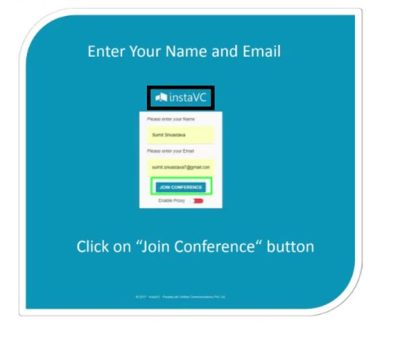- AI
- Air Pollution
- Arbitration
- Asia
- Automobile
- Bangladesh
- Banking
- Biodiversity
- Biological Inventions
- bLAWgathon
- Brand Valuation
- Business
- Celebrity Rights
- Company Act
- Company Law
- Competition Law
- Constitutional Law
- Consumer Law
- Consumer Protection Authority
- Copyright
- Copyright Infringement
- Copyright Litigation
- Corporate Law
- Counterfeiting
- Covid
- Cybersquatting
- Design
- Digital Media
- Digital Right Management
- Dispute
- Educational Conferences/ Seminar
- Environment Law Practice
- ESIC Act
- EX-Parte
- Farmer Right
- Fashion Law
- FDI
- FERs
- Foreign filing license
- Foreign Law
- Gaming Industry
- GDPR
- Geographical Indication (GI)
- GIg Economy
- Hi Tech Patent Commercialisation
- Hi Tech Patent Litigation
- IBC
- India
- Indonesia
- Intellectual Property
- Intellectual Property Protection
- IP Commercialization
- IP Licensing
- IP Litigation
- IP Practice in India
- IPAB
- IPAB Decisions
- IT Act
- IVF technique
- Judiciary
- Khadi Industries
- labour Law
- Legal Case
- Legal Issues
- Lex Causae
- Licensing
- Live-in relationships
- Lok Sabha Bill
- Marriage Act
- Maternity Benefit Act
- Media & Entertainment Law
- Mediation Act
- Member of Parliament
- Mergers & Acquisition
- Myanmar
- NCLT
- NEPAL
- News & Updates
- Non-Disclosure Agreement
- Online Gaming
- Patent Act
- Patent Commercialisation
- Patent Fess
- Patent Filing
- patent infringement
- Patent Licensing
- Patent Litigation
- Patent Marketing
- Patent Opposition
- Patent Rule Amendment
- Patents
- Personality rights
- pharma
- Pharma- biotech- Patent Commercialisation
- Pharma/Biotech Patent Litigations
- Pollution
- Posh Act
- Protection of SMEs
- RERA
- Sarfaesi Act
- Section 3(D)
- Signapore
- Social Media
- Sports Law
- Stamp Duty
- Stock Exchange
- Surrogacy in India
- TAX
- Technology
- Telecom Law
- Telecommunications
- Thailand
- Trademark
- Trademark Infringement
- Trademark Litigation
- Trademark Registration in Foreign
- Traditional Knowledge
- UAE
- Uncategorized
- USPTO
- Vietnam
- WIPO
- Women Empower
The Indian Government is working to improve the ease of doing business with the objective of converting India into a global innovation hub. A robust intellectual property rights regime is necessary to achieve this objective. The Ministry of Commerce and Industry along with the Office of Controller General of Patents, Design and Trademark has introduced several changes over time to streamline and simplify the Intellectual property registration process within India. For instance, the Patent (Amendment) Rules 2016 not only introduced an expedited procedure for the grant of patents but also simplified the overall hearing process in the grant of patents.
Rule 28 of the Patent Rules 2003 prescribes procedure in case of anticipation by prior publication. If the applicant contests the objections raised by the Controller in the examination report, he is entitled to a mandatory hearing. Pre-2016 amendment, the hearings were to be conducted offline before the respective patent office which was cumbersome and lead to an inordinate expenditure of time, money and resources. The 2016 amendment introduced sub rule (6), allowing for hearings to be held through audio-visual communication devices and video conferencing as defined under section 2(1) (ha) of the Information Technology Act, 2000. The simplification of the hearing procedure denotes a step forward in the direction of creating a hassle-free and robust IP protection regime in India.
Under the current system, Applicants and Patent Agents can attend hearings through the Webvideo Conferencing system. From 2016 till May 25, 2023, the web video conferencing was being conducted on the instaVC platform.
[Image Sources : Indian Patent Office Website]
However, this instaVC platform suffered multiple issues such as, but not limited to, poor audio-visual connectivity, network latency, and systemic errors when multiple participants joined the platform.
To address these systemic issues, the office of Controller General of Patents, Design, and Trademark has taken the initiative to shift the web video conferencing instaVC platform to a new and reliable Cisco Webex platform for the conduction of online hearings from May, 29th 2023. The objective of this decision is to provide a streamlined and a hassle-free hearing experience to the stakeholders (applicants and agents) as well as the Examiners/Controllers of the Indian Patent Office (IPO) making the Indian patents regime more attractive to prospective patent applicants. Therefore this decision is a welcome move for the patent industry.
Author: Kartikeya Amitabh Mishra is a law student at National Law University, Jodhpur, in case of any queries please contact/write back to us via email to chhavi@khuranaandkhurana.com or at Khurana & Khurana, Advocates and IP Attorney.
References:
1-Patent (Amendment) Rules 2016; Accessed at:
https://ipindia.gov.in/writereaddata/Portal/News/230_1_Patent__Amendment_Rules_2016_16May2016.pdf
2-Press Information Bureau; Accessed at:




